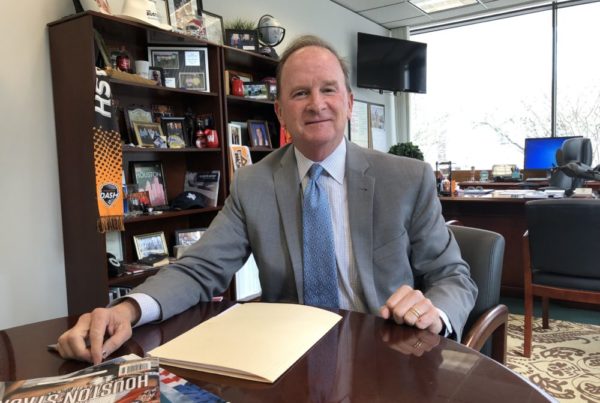It’s no secret that Texans talk a little funny. But how exactly does the English spoken in the Lone Star State differ from what you hear in the other 49?
Lars Hinrichs, associate professor of English linguistics at the University of Texas at Austin, and director of the Texas English Project, says Gov. Greg Abbott is a perfect case study to understand how Texans talk.
“He sounds so Texan,” Hinrichs says. “And that’s why he’s a good starting point.”
He says Abbott changes his vowel sounds in a predictable way. That’s evident when you examine certain words in some of the governor’s sentences.
Here’s one example (click on the audio player above to get the full experience):
“They’re professionals. They know how to deal with it They’re executing as best as they can right now.”
“Did you hear how he said ‘right now’ at the end?” Hinrichs says. “He pronounces it the Texan way.”
The key change is a flattening out of the “i” vowel.
Here’s another quote from Abbott: “They’re gonna be able to follow those leads to the end.”
Hinrichs says the way Abbot pronounces “leads” is part of a broad process known as the “Southern vowel shift,” which has been happening gradually over the past 100 years. In that, Hinrichs says the “e” sounds more like a long “a” sound.
Texans often maintain their accent regardless of whether they change their socio-economic status or level of education, Hinrichs says – something that can happen with other accents.
“People like their Texas speech,” Hinrichs says. “In Texas, you don’t really lose your accent only because you’ve made it somewhere in life.”
Written by Sol Chase.

















